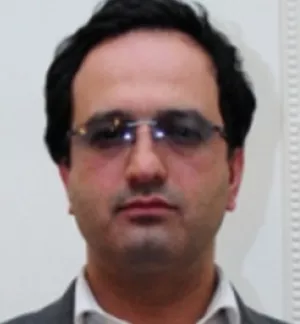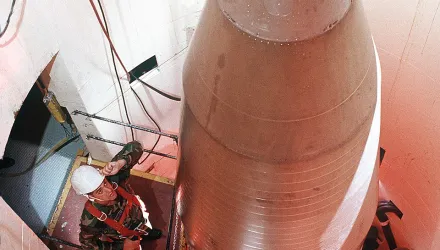A NEW National Intelligence Estimate indicating that Iran currently has no nuclear weapons program has been widely interpreted as reducing the possibility of conflict between that country and the United States. Even so, the reaction within Iran itself has been mixed, and it is not yet clear how the intelligence report will affect the political temperature in the country.
The foreign minister, Manouchehr Mottaki, has welcomed the US report, calling on the United States to "correct" its "erroneous policies based on false assumptions about Iran." Meanwhile, other Iranian officials have questioned what Foreign Ministry spokesman Ali Hosseini called the "baseless premise that Iran had a weapons program."
Within Iran's parliament, the predominant sentiment has been that the new report's revision of earlier, more alarmist estimates of Iran's nuclear activities is a positive development that should pave the way to the de-escalation of the nuclear crisis, which has been hurting Iran's economy as a result of the United Nations and US sanctions. There are, however, dissenting voices. One official has warned in the Tehran daily, Hambastegi, that this report represents "more a strategic trap for Iran" by accusing Iran of past nuclear weapons activities.
What's clear is that supporters of Iran's fiery president, Mahmoud Ahmadinejad, have interpreted the US report as a vindication of his defiant nuclear and foreign policy stance. That stance has come under much fire by the more moderate factions, particularly those led by the former president, Ali Akbar Hashemi Rafsanjani, who has publicly warned of the threats to Iran by the lingering nuclear crisis.
But now, with a new round of parliamentary elections less than four months away, the new US report has the potential to benefit Ahmadinejad and the hard-line factions dominating the parliament — particularly if it paves the way to a "diplomatic surge" intended to defuse the nuclear standoff. There is already an Iranian consensus that this report has taken the wind out of the sails of new UN sanctions against Iran.
And it has raised Tehran's expectation that its current quest to "normalize" Iran's nuclear dossier at the International Atomic Energy Agency, away from the hands of the UN Security Council, will now gain momentum.
Notwithstanding indications that President Bush will continue his drive for greater sanctions on Iran, the effect of the report upon US policy and the "5 plus 1" discussions at the Security Council remains to be seen.
But the report will indisputably ease the factional politics within Iran centered on the nuclear policy.
Paradoxically, both the moderate and hard-line factions have found their political arsenal strengthened, directly or indirectly, by the US intelligence report.
Some Iranian reformist pundits such as Mohsen Aminzadeh have pointed out that credit must go to the former president Mohammad Khatami, who was in office in 2003, for taking proactive steps (cited in the US report).
Yet, the upper hand belongs to Ahmadinejad. Despite his harsh rhetoric, he has broken the longstanding taboo against direct dialogue with the United States, and has repeatedly stated his desire to remove the "tall wall of distrust" between the United States and Iran.
Ahmadinejad's concern now is the lack of a consistent follow-up by the Bush administration; positive signals in the wake of the new report are likely to elicit a positive response from Iran.
This is a fair concern, in light of a long history of half-steps and inconsistent US initiatives toward Iran — not to mention Bush's spurning of a recent Iranian offer to resolve the outstanding issues between the two countries as part of a "package approach." The intelligence report gives the United States the opportunity to set US-Iran relations on a more constructive track, and US leaders should avoid steps that would close that window.
With the United States and Iran poised for a fourth round of dialogue on Iraq's security, and the latest IAEA report confirming Iran's steady cooperation and increasing nuclear transparency, the stage is now set for a thaw in the hitherto hostile US-Iran relations.
Both sides should heed the call by the head of IAEA, Mohammad ElBaradei, to use the intelligence report as the basis for a comprehensive dialogue geared toward normalization.
Kayhan Barzegar, a research fellow at Harvard's Kennedy School of Government, teaches political science at Tehran's Azad University.
Barzegar, Kayhan. “The View from Iran.” The Boston Globe, December 5, 2007





